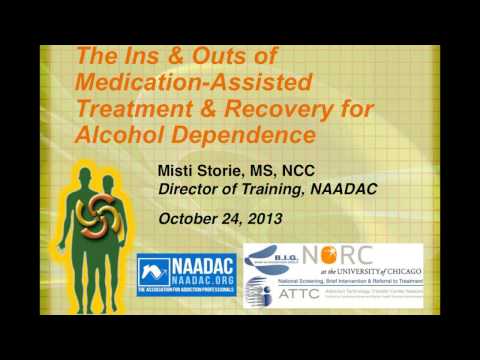Medication Assisted Treatment for Alcohol Dependence
Contents
- Introduction to Medication Assisted Treatment (MAT) for alcohol dependence.
- The benefits of MAT for alcohol dependence.
- The risks of MAT for alcohol dependence.
- The effectiveness of MAT for alcohol dependence.
- The side effects of MAT for alcohol dependence.
- The cost of MAT for alcohol dependence.
- The availability of MAT for alcohol dependence.
- The pros and cons of MAT for alcohol dependence.
- The success rates of MAT for alcohol dependence.
- Why MAT is the best treatment for alcohol dependence.
If you or someone you know is struggling with alcohol dependence, Medication Assisted Treatment (MAT) may be an effective option. MAT involves the use of FDA-approved medications, along with counseling and behavioral therapies, to provide a “whole-patient” approach to treatment.
MAT can help to reduce cravings and withdrawal symptoms, making it easier for people to stick to their treatment plan. If you or someone you know is struggling with alcohol dependence, talk to a healthcare provider
Checkout this video:
Introduction to Medication Assisted Treatment (MAT) for alcohol dependence.
Medication Assisted Treatment or MAT, is the use of medications in combination with counseling and behavioral therapies to treat substance use disorders. The medications used in MAT are approved by the FDA to treat alcohol dependence.
MAT for alcohol dependence is often combined with counseling and other support services to provide a comprehensive treatment plan. There is no one-size-fits-all approach to MAT, and treatment plans are tailored to meet the needs of each individual patient.
MAT can be an effective tool for helping people with alcohol dependence achieve and maintain abstinence from alcohol. Medications used in MAT can help reduce cravings for alcohol, manage withdrawal symptoms, and prevent relapse.
The benefits of MAT for alcohol dependence.
MAT for alcohol dependence is an effective way to help people struggling with alcoholism. MAT involves the use of medication to help reduce cravings and withdrawal symptoms, making it easier for people to stick to their treatment plan. MAT is often combined with counseling and other support services to provide a comprehensive approach to treatment.
There are many benefits of MAT for alcohol dependence, including:
·Reduced cravings and withdrawal symptoms: Medication can help reduce cravings for alcohol and make it easier to cope with withdrawal symptoms.
·Increased chance of successful treatment: People who receive MAT are more likely to stay in treatment and achieve long-term sobriety than those who do not receive medication.
·Improved overall health:MAT can help improve a person’s overall health by reducing the harmful effects of alcoholism on the body.
·Improved quality of life:MAT can help improve a person’s quality of life by reducing the negative impact of alcoholism on their life.
The risks of MAT for alcohol dependence.
medication assisted treatment or MAT, is a controversial topic in the realm of alcohol dependence. There are many that view it as simply substituting one addiction for another. The reality is that MAT can be an important piece of treatment for those suffering from alcohol dependence, but it is not without its risks. This article will explore some of the risks associated with MAT for alcohol dependence.
The effectiveness of MAT for alcohol dependence.
There is growing evidence that Medication Assisted Treatment (MAT) is an effective approach for addressing alcohol dependence. MAT involves the use of medication to help manage withdrawal symptoms and cravings, making it easier for individuals to abstain from drinking. MAT is often used in combination with behavioral therapies, such as counseling and support groups.
A number of studies have shown that MAT can effectively help people reduce their drinking and maintain abstinence over the long-term. For example, a large-scale study published in 2012 found thatMAT was associated with a significantly lower risk of relapse among individuals with alcohol dependence. In addition, a review of 44 studies found that MAT was associated with improved outcomes, including increased abstinence and reduced alcohol consumption, compared to no treatment or placebo.
While MAT is an effective treatment approach for alcohol dependence, it is important to note that it is not a cure. MAT can help people manage their dependence and achieve sobriety, but it does not eliminate the underlying causes of alcoholism.
The side effects of MAT for alcohol dependence.
One of the most common side effects of MAT for alcohol dependence is nausea. This can usually be managed with over-the-counter medications, but in some cases, prescription medication may be necessary. Another common side effect is fatigue, which can also be managed with over-the-counter medication or by making sure to get enough rest. In rare cases, MAT for alcohol dependence can cause liver damage. This side effect is more common in people who abuse alcohol while taking MAT medications.
The cost of MAT for alcohol dependence.
There is no one-size-fits-all answer to the question of how much MAT for alcohol dependence will cost. The type of treatment, the length of treatment, the severity of the dependence, and whether or not the patient has health insurance all play a role in determining the final price tag.
That said, it is possible to provide some ballpark estimates for the cost of different types of MAT for alcohol dependence. Inpatient detoxification programs can cost anywhere from $500 to $1,500 per day, while inpatient rehabilitation programs can cost $500 to $800 per day. Outpatient programs can cost anywhere from $50 to $250 per week.
MAT for alcohol dependence is not cheap, but it is often far less expensive than the alternative: continuing to drink heavily and letting the addiction take over their lives. Funding for treatment should be available through most health insurance plans, as well as through government programs like Medicaid and Medicare. Patients who do not have insurance should still be able to find affordable treatment options through a variety of public and private sources.
The availability of MAT for alcohol dependence.
Medication Assisted Treatment (MAT) is an evidence-based practice that combines the use of medications with counseling and behavioral therapies to treat substance use disorders. MAT is effective in treating alcohol dependence, and it is becoming more available as a treatment option.
The pros and cons of MAT for alcohol dependence.
There are many different approaches to treating alcohol dependence, and each has its own set of pros and cons. One approach that has gained popularity in recent years is medication-assisted treatment, or MAT.
MAT involves the use of medications to help individuals detox from alcohol and reduce their cravings. This can be an effective treatment for some people, but it’s not right for everyone. Here are some of the pros and cons of MAT for alcohol dependence:
Pros:
-Can help people detox safely and effectively
-Can reduce cravings and prevent relapses
-Is often used in combination with other forms of treatment, such as counseling and support groups
Cons:
-Not right for everyone – some people may not respond well to the medications used in MAT
-Can be expensive
-Requires ongoing monitoring and compliance with the medication regimen
The success rates of MAT for alcohol dependence.
There is a great deal of debate surrounding the use of medication assisted treatment (MAT) for alcohol dependence, with some people arguing that it is an effective way to manage the condition and others claiming that it simply substitutes one addiction for another. However, there is a growing body of evidence that suggests that MAT can be an effective tool in the fight against alcohol dependence.
One study published in the Journal of the American Medical Association in 2013 found that those who received MAT for alcohol dependence were more likely to remain abstinent from drinking than those who did not receive MAT. The study followed 600 participants over the course of a year, and found that those who received MAT were more than twice as likely to abstain from drinking for the entirety of the study period than those who did not receive MAT.
Other studies have also shown positive results for MAT in treating alcohol dependence. A study published in The Lancet in 2014 found that patients who received MAT were more likely to achieve and maintain abstinence from drinking than those who did not receive MAT. This study followed 1,784 patients over the course of two years, and found that patients who received MAT were almost three times as likely to achieve long-term abstinence as those who did not receive MAT.
These studies suggest that medication assisted treatment can be an effective way to treat alcohol dependence. However, it is important to note thatMAT is only one part of a comprehensive treatment plan for alcohol dependence. In order to be successful, patients must also participate in counseling and other forms of therapy
Why MAT is the best treatment for alcohol dependence.
MAT is the best treatment for alcohol dependence because it combines medication with behavioral therapy. Medication helps to reduce cravings and withdrawal symptoms, while behavioral therapy helps to change the patient’s thinking and behavior. MAT is more effective than either medication or behavioral therapy alone.







